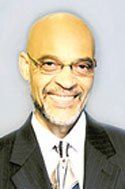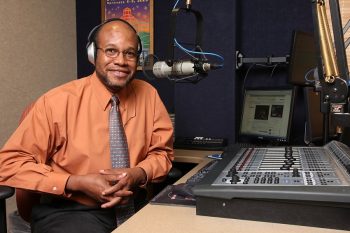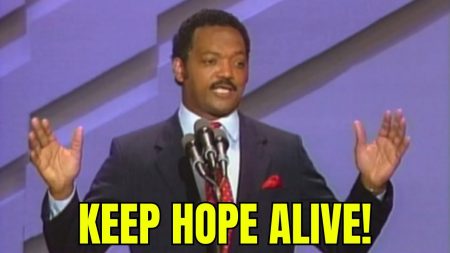Opinion: Where’s Condi?
 |
| Earl Ofari Hutchinson |
The day before President Bush spoke to the NAACP, Secretary of State Condoleezza Rice was scheduled to meet with the Congressional Black Caucus. The meeting didn’t happen. The CBC did not say why it was cancelled, or when it would be rescheduled. But if it had happened, the Caucus would, and should, have asked Condi tough questions on Bush foreign policy. If it did, it wouldn’t have been the first time Rice has been on the foreign policy hot seat. In February, Republicans and Democrats on the Senate Foreign Relations Committee virtually dumped Bush’s international miscues on her.
That’s fair and unfair. Rice is Bush’s point person on foreign policy. Her job is to sell administration policy decisions on North Korean nukes, Iran, the Middle East turmoil, the war on terrorism, and Iraq. When things go wrong internationally, she, as other Secretaries of State have, will take heat.
Rice has been a soft target for criticism from the instant that Bush announced that he’d appoint her to take over from the departing Colin Powell as Secretary of State. The howls started that Rice was too hawkish, too fawning toward Bush, too lacking in social and diplomatic graces, and too inexperienced to broker an Israeli-Palestinian settlement, and resolve the crisis over Iran and North Korea’s nuke threat. There were big doubts over whether she would bring any new ideas to the table in terms of how to deal with these problems.
Rice didn’t burnish her image as a take charge diplomat when she initially waffled on whether to lead a peace mission to the Middle East to stop the fighting between Israel and Hezbollah. She begged off with the vapid and unsatisfactory rejoinder that she’d only go if she could be “helpful.” Rice recovered fast and will now lead the peace mission and try to armlock both sides to end the killing. Whether she can overcome Arab enmity toward Bush’s silence on Israel’s Lebanon bombardment remains to be seen.
Before taking the reins at State, her expertise was on the Soviet Union and its military relations with the East European satellite countries. By the time she took the reins as Bush’s security advisor, the Soviet Union was out of business, and many of the Eastern European countries had either been reconfigured or had become allies of the U.S. There were long stretches during the intense debates over Bush’s Iraq war policy, the war on terrorism, foreign policy and security matters, when Rice, then Bush’s National Security Advisor, sank from public view. During those time lapses, Powell, Secretary of Defense Donald Rumsfeld, and even Vice President Dick Cheney became familiar fixtures on talk shows explaining Bush policy. Some inveterate Bush watchers asked, “Where’s Condi?”
But Rice’s role is not to make policy but to follow Bush policy directives. Rice is perfectly suited for that role. As a close personal family friend and political ally of Bush Sr. and Bush Jr., she has always been the consummate team player. Like a good team player she takes orders, follows directions, and does not stray one inch from the Bush administration political script.
Even if Rice can and did publicly take her boss to task on some aspects of foreign policy, and Bush listened, the glaring flaws would not instantly be picked out of his policies. There are complex competing interests that help shape American foreign policy apart from Bush’s, or any other president’s, ideology and world-view.
Congress, especially the Senate and House Foreign Relations Committee, the various government bureaucracies, the CIA, the Defense Department, the International Monetary Fund, key non-governmental organizations, the major oil, auto, aerospace, and corporations, and banks, have a great deal of say in foreign policy matters. Iraq is a near textbook example of that.
The Senate Republicans, and even most of the Democrats, that pounded her for Bush’s Iraq bungling, dutifully voted for the war, and have repeatedly given foreign policy cover for it. While Bush and Rice hotly deny that oil has anything to do with the decision to impose a regime change in Iraq, Iraq’s oil is worth billions, and U.S. oil and energy companies make no secret that they intend to control it and reap the profits. Rice is only a bit player in the global economic decisions that go into making and shaping U.S. foreign policy.
That’s not to say that Rice is simply a Bush totem. She has real political and diplomatic shelf value to Bush and the GOP. She is an ad person’s dream. She is articulate, and polished, and the answers she gives to key policy questions on TV talk shows and at congressional hearings, even when they are tepid, self-serving and contradictory, give a semblance of credence and believability to Bush’s foreign policy fumbles and miscues.
Her telegenic demeanor has even prompted the tantalizing what if question, namely what if Rice sought to replace Bush when his days in the White House end in 2008 and make a serious bid for the presidency. Rice repeatedly says that she isn’t interested, and even laughs off the possibility. It’s good that she does. Rice is a die-hard Bush loyalist, and that won’t change.
Where’s Condi? Right there where she’s always been, at Bush’s side taking the heat for his foreign policy blunders.
Earl Ofari Hutchinson is a columnist, political analyst, author, and social issues commentator.
Rice has been a soft target for criticism from the instant that Bush announced that he’d appoint her to take over from the departing Colin Powell as Secretary of State. The howls started that Rice was too hawkish, too fawning toward Bush, too lacking in social and diplomatic graces, and too inexperienced to broker an Israeli-Palestinian settlement, and resolve the crisis over Iran and North Korea’s nuke threat. There were big doubts over whether she would bring any new ideas to the table in terms of how to deal with these problems.
Rice didn’t burnish her image as a take charge diplomat when she initially waffled on whether to lead a peace mission to the Middle East to stop the fighting between Israel and Hezbollah. She begged off with the vapid and unsatisfactory rejoinder that she’d only go if she could be “helpful.” Rice recovered fast and will now lead the peace mission and try to armlock both sides to end the killing. Whether she can overcome Arab enmity toward Bush’s silence on Israel’s Lebanon bombardment remains to be seen.
Before taking the reins at State, her expertise was on the Soviet Union and its military relations with the East European satellite countries. By the time she took the reins as Bush’s security advisor, the Soviet Union was out of business, and many of the Eastern European countries had either been reconfigured or had become allies of the U.S. There were long stretches during the intense debates over Bush’s Iraq war policy, the war on terrorism, foreign policy and security matters, when Rice, then Bush’s National Security Advisor, sank from public view. During those time lapses, Powell, Secretary of Defense Donald Rumsfeld, and even Vice President Dick Cheney became familiar fixtures on talk shows explaining Bush policy. Some inveterate Bush watchers asked, “Where’s Condi?”
But Rice’s role is not to make policy but to follow Bush policy directives. Rice is perfectly suited for that role. As a close personal family friend and political ally of Bush Sr. and Bush Jr., she has always been the consummate team player. Like a good team player she takes orders, follows directions, and does not stray one inch from the Bush administration political script.
Even if Rice can and did publicly take her boss to task on some aspects of foreign policy, and Bush listened, the glaring flaws would not instantly be picked out of his policies. There are complex competing interests that help shape American foreign policy apart from Bush’s, or any other president’s, ideology and world-view.
Congress, especially the Senate and House Foreign Relations Committee, the various government bureaucracies, the CIA, the Defense Department, the International Monetary Fund, key non-governmental organizations, the major oil, auto, aerospace, and corporations, and banks, have a great deal of say in foreign policy matters. Iraq is a near textbook example of that.
The Senate Republicans, and even most of the Democrats, that pounded her for Bush’s Iraq bungling, dutifully voted for the war, and have repeatedly given foreign policy cover for it. While Bush and Rice hotly deny that oil has anything to do with the decision to impose a regime change in Iraq, Iraq’s oil is worth billions, and U.S. oil and energy companies make no secret that they intend to control it and reap the profits. Rice is only a bit player in the global economic decisions that go into making and shaping U.S. foreign policy.
That’s not to say that Rice is simply a Bush totem. She has real political and diplomatic shelf value to Bush and the GOP. She is an ad person’s dream. She is articulate, and polished, and the answers she gives to key policy questions on TV talk shows and at congressional hearings, even when they are tepid, self-serving and contradictory, give a semblance of credence and believability to Bush’s foreign policy fumbles and miscues.
Her telegenic demeanor has even prompted the tantalizing what if question, namely what if Rice sought to replace Bush when his days in the White House end in 2008 and make a serious bid for the presidency. Rice repeatedly says that she isn’t interested, and even laughs off the possibility. It’s good that she does. Rice is a die-hard Bush loyalist, and that won’t change.
Where’s Condi? Right there where she’s always been, at Bush’s side taking the heat for his foreign policy blunders.
Earl Ofari Hutchinson is a columnist, political analyst, author, and social issues commentator.







